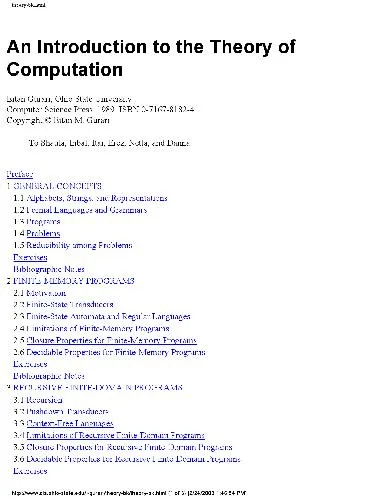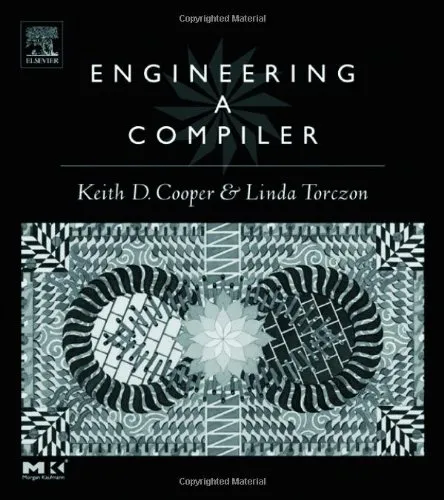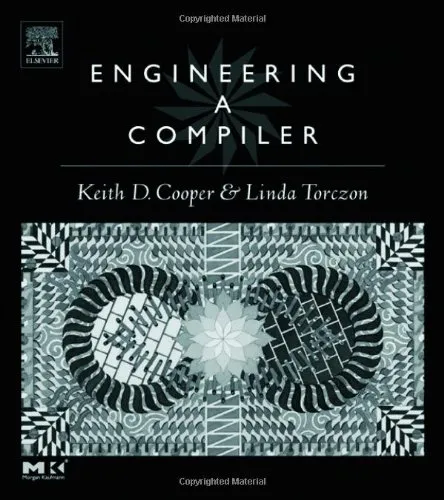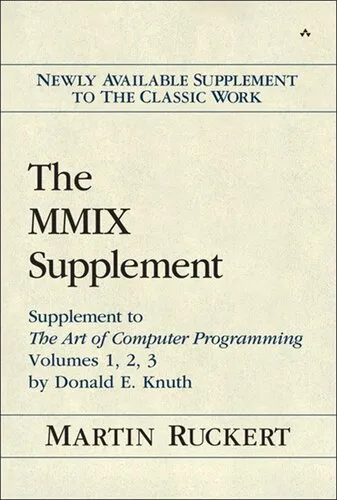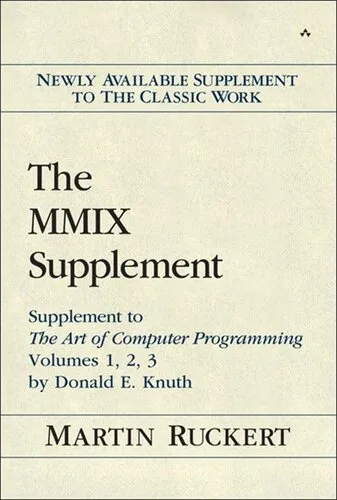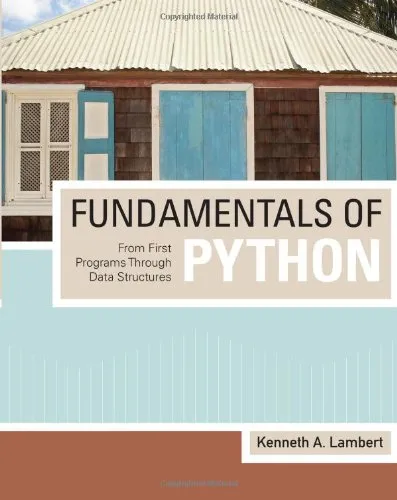Introduction to the theory of computation
4.2
Reviews from our users

You Can Ask your questions from this book's AI after Login
Each download or ask from book AI costs 2 points. To earn more free points, please visit the Points Guide Page and complete some valuable actions.Related Refrences:
Persian Summary
Welcome to the insightful realm of 'Introduction to the Theory of Computation', a comprehensive guide that elucidates the intricate and fascinating world of computational theory. Written by Eitan Gurari, this book serves as a pivotal resource for students, educators, and anyone interested in understanding the core principles that underpin computer science.
Detailed Summary of the Book
The book is meticulously crafted to provide a foundational understanding of the theory of computation. It begins with the fundamentals, introducing key concepts such as automata theory, formal languages, and complexity theory. The text is designed to lead the reader through the landscape of computational theory with clarity and precision.
The initial chapters focus on automata and formal languages, offering detailed explanations of deterministic and nondeterministic finite automata, context-free grammars, and Turing machines. These topics are not only explored theoretically but are also examined through practical examples and problem-solving exercises that encourage active learning.
As the book progresses, it delves into complexity theory, addressing crucial topics such as P vs NP, computational reducibility, and complexity classes. The author presents these complex ideas in a manner that is both accessible and intellectually stimulating, ensuring that readers gain a nuanced understanding of the subject matter.
In the latter parts of the book, advanced topics like probabilistic algorithms and quantum computing are introduced, providing readers with a glimpse into cutting-edge research areas within computational theory. Throughout the text, Gurari employs a pedagogical approach that balances rigorous theoretical exploration with relevant practical applications.
Key Takeaways
- Understand the core concepts of automata theory and their applications in real-world scenarios.
- Gain a solid grasp of formal languages and the role they play in computational theory.
- Explore the intricacies of complexity theory and the ongoing debates surrounding P vs NP.
- Develop problem-solving skills through a myriad of examples and exercises embedded within the text.
- Investigate advanced topics such as probabilistic methods and quantum computing, broadening your computational horizons.
Famous Quotes from the Book
"The power of computation is not in its ability to perform repetitive tasks, but in its capability to seek out and conquer the unknown frontiers of complexity."
"To comprehend the language of machines, one must first understand the grammar of thought."
Why This Book Matters
This book is an essential contribution to the domain of computer science education. It offers a comprehensive yet accessible introduction to the theory of computation, bridging the gap between theoretical foundations and practical applications. The depth and breadth of coverage make it an invaluable resource for both beginners and seasoned professionals seeking to deepen their understanding of how computational processes work.
Furthermore, Gurari's approach demystifies complex theories, making them accessible to readers without a deep mathematical background. This democratization of knowledge is crucial in a world where computational literacy is increasingly important across various fields. By equipping readers with a solid understanding of computational theory, the book empowers them to contribute meaningfully to advancements in technology and science.
In summary, 'Introduction to the Theory of Computation' is more than just a textbook; it is a roadmap to the future of computational exploration, propelling readers into a deeper appreciation of the capabilities and potential of computation.
Free Direct Download
You Can Download this book after Login
Accessing books through legal platforms and public libraries not only supports the rights of authors and publishers but also contributes to the sustainability of reading culture. Before downloading, please take a moment to consider these options.
Find this book on other platforms:
WorldCat helps you find books in libraries worldwide.
See ratings, reviews, and discussions on Goodreads.
Find and buy rare or used books on AbeBooks.
